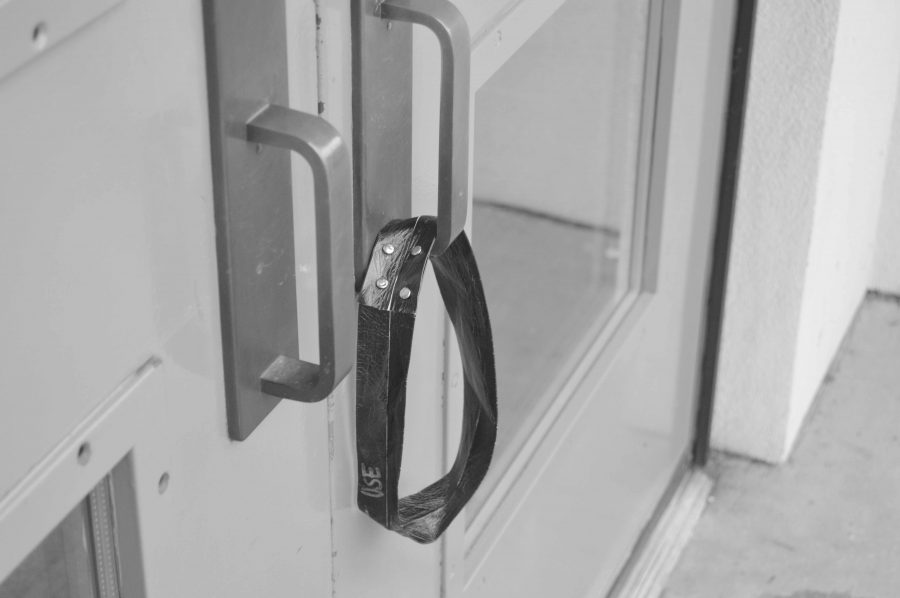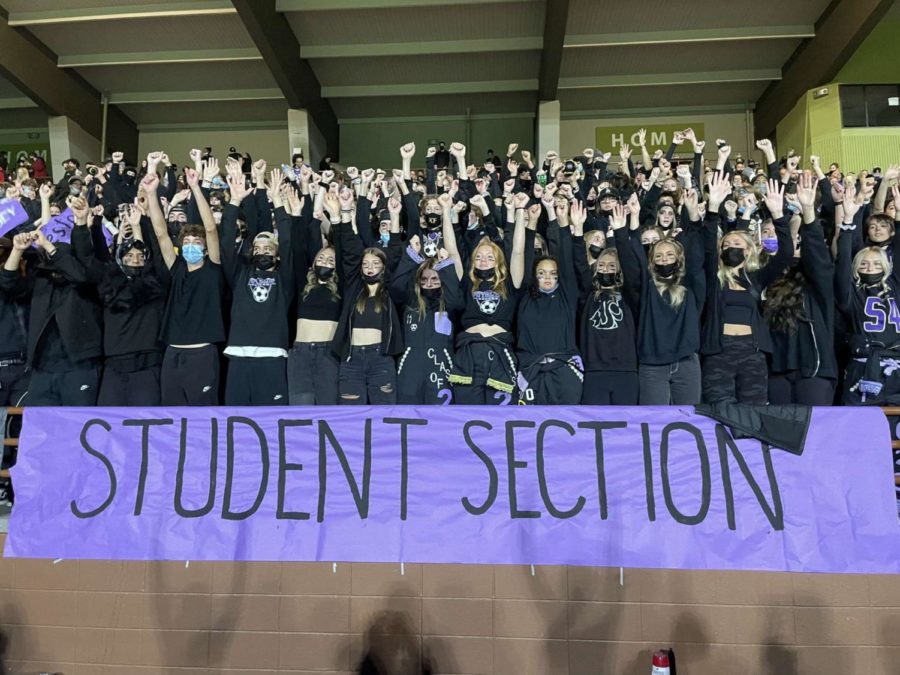Debt can be a common concern for high school graduates about to embark upon their journeys into college; figuring out the ways and means to pay for such an expensive education is often tiresome.
Math in Society and Algebra II teacher Leigh Ann Mahaffie states that there are some common mistakes that students often make when first going into college and deciding how to pay off the many expenses.
“Students will often take on too much debt at the beginning. They might think ‘oh, I will just pay for stuff with a loan or a credit card’ and because it is that short-term thinking of ‘I can get what I need right now,’ students are not seeing that long-term picture of interest accruing and that you will always have to pay the bill at some point,” Mahaffie said. “In college you probably are not working a whole lot and you do not have enough money to pay off those bills when they are due. It is very important to not build up debt when going into college and not take on too much debt to pay for college.”
Mahaffie reveals that one of the most important things that students can do to avoid as much debt as possible during college is to consider other financial options that they may qualify for, prior to taking out student loans.
“You always want to exhaust the possibilities of scholarships and grants and all your other options first. Is there work-study or FAFSA? Is there something that the college has for you? You really have to do a cost-benefit analysis and compare what it is going to cost you and what it is going to get you,” Mahaffie said.
According to school counselor Michael Sanchez, there are two categories of student loans that an individual can be grouped into that can influence how much money a student will have to pay in loans while in college.
“The biggest thing with loans is that there is a distinction between private loans and public loans. The government provides you with unsubsidized and subsidized student loans but not everyone qualifies for public loans because parents have to meet a certain income threshold or the student has to meet a certain criteria to qualify for the loans,” Sanchez said. “If you do not qualify, you have to get what is called a private loan. Private loans range in percentages that you owe and they are all about giving you money for education but some of them will have high interest rates or some of them will require you to start paying them back during your school time. There are a lot of things to watch out for concerning private loans.”
While loans can be notorious for building up debt throughout the years a student is enrolled in college, Sanchez reveals that you can use the benefits of certain student loans to your own advantage.
“One of the things you can do is that if you have a job while you are in school, you could start paying the interest on those loans before the interest is due. If the loan is subsidized, the government will pay the interest for you and then you are only paying the principal. If the loan is unsubsidized, the government is not paying the interest for you and the interest is accruing. So if you are paying the interest while you are in school, you end up having a lesser amount to pay off after you graduate,” Sanchez said.
According to Mahaffie, if taking out student loans is the only option you have to pay for college, then they can be beneficial but it is advised to take out as minimal an amount of student loans as possible.
“If taking out student loans is the only option you have, then they can be great. You need some kind of college education whether that is community college or a vocational program or university; you need some kind of training after high school. If student loans are the only way you can get there, then that is what you need to do,” Mahaffie said.
In order to pay off student loans as quickly as possible, Mahaffie advises students to pay extra on the monthly minimum payment whenever they can.
“I would encourage people to always pay more than the minimum payment. The minimum payment is just going to start making progress in paying down the principal debt but if you pay more than the minimum payment, you are going to be making even more progress. Wherever you can, you just want to pay that little bit extra and try to pay the debt off as quickly as you can and it will eventually start to add up,” Mahaffie said.
Due to the fact that many student loans are owned by specific companies, Sanchez recommends that students go online and look up the benefits of the student loans they are receiving, as well as the benefits from the career field they are headed into in order to see how much debt they will need to pay off after graduation.
“It is good to look at job descriptions and the companies who own the student loans. If you wanted to be a nurse it would not be a problem to go online and look at the list of benefits associated with that job so that for after graduation you will know what kinds of benefits you can get from your job that may help pay off debt,” Sanchez said.
According to Sanchez, there are also many savings plans and options students can look at depending on their financial situations that can assist with paying off future debts and expenses.
“It is all about the return on investment. You want to look at what is going to get you the biggest bang for your buck. If you are going to be needing money to be fluid and needing to move it around quite a bit, putting the money in a Certificate of Deposit [CD] or a bond will be really difficult because you will not be able to access that money as easily without a penalty,” Sanchez said.
Sanchez recommends that students who are looking to save money for future expenses look into the more long term savings plans and talk through things with a trusted adult.
“If you are the type of person where you get a chunk of money and you do not need to touch it for a while, CDs and bonds might be better options for you. Or if you decide to invest in mutual funds and the stock market, you can get money back. What is most important is to build up a savings account that you can address. It is also important for students to talk over things with an adult who knows what they are doing,” Sanchez said.
As an important rule of thumb in avoiding the collection of huge amounts of debt, Mahaffie encourages students to avoid frequent use of credit cards whenever possible.
“You want to stay away from credit cards whenever you can. Credit cards are really just loans. You are saying that you cannot afford to pay something right now but that you will pay for it at some point. When you are younger and just starting out and have had any problems with your credit history, the interest rates you will have to pay on your payments from credit cards are going to be higher. That interest really piles on and you are taking on a loan at a really high interest rate,” Mahaffie said.
Mahaffie urges students to evaluate how important and necessary something is to their current situation before purchasing anything on credit that they may not be able to pay back in a quick and reasonable amount of time.
“If you cannot afford something, you really need to ask ‘Do I really need this right now?’ and if you do, is there another way to pay for it? If you cannot pay it another way, you want to think about how quickly you can pay it off, otherwise your payments are just sitting there, piling up money for the bank,” Mahaffie said.
Aside from evaluating the urgency of long term and short term needs when purchasing something on credit, Mahaffie advises students to maintain a critical eye so that they do not succumb to the several dangerous sales tactics that credit card companies often use to promote their credit card programs with.
“Credit card companies make themselves really appealing but credit card companies are not your friends. They are out to make money off of you. When you are feeling desperate, it is so easy to get sucked right in but no matter how panicked you are, you have to maintain that critical eye of ‘What is the interest rate? How am I going to pay the next bill off when it is due next month? How quickly am I going to be able to pay it off?’ Once you have a little bit of credit card debt, it is easy to use the credit card and put yourself in that dangerous financial situation again,” Mahaffie said.
Sanchez reiterates the importance of evaluating the long-term effects that students’ current financial decisions can have on their futures and to always think about what kinds of future goals they have and to orient their current decisions according to those goals.
“You always want to look at what kind of life you want to live after college. Right now, you can live to the biggest extremes and buy cars and go on vacations or you can minimize those things as much as you can and wait until one day where you can do all of that with complete financial freedom. I think that the biggest thing students can do right now is to weigh their financial options,” Sanchez said. “Can you get the same education at Whitworth that you can get at Washington State University? Can you get the same education at Western Washington University that you can get at University of Washington?”
When evaluating which college to attend after high school, Sanchez states that students should always decide whether the cost of the education supports the career field they are headed into.
“Each school costs a different amount of money and private schools are always going to cost more than public schools. So I would urge kids to really weigh their options about where they decide to go to school. It is good to look at whether the cost of the education is really worth what you are going to do for a career,” Sanchez said.





